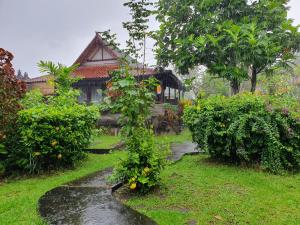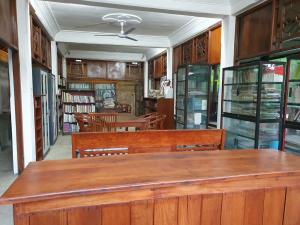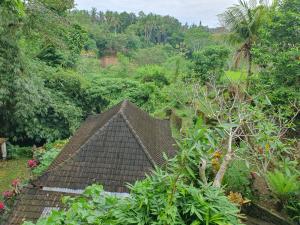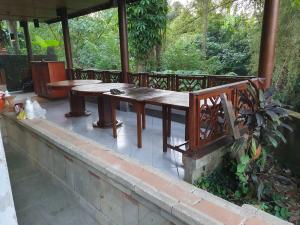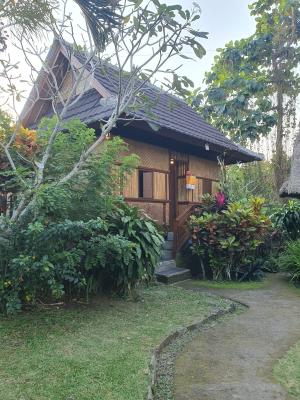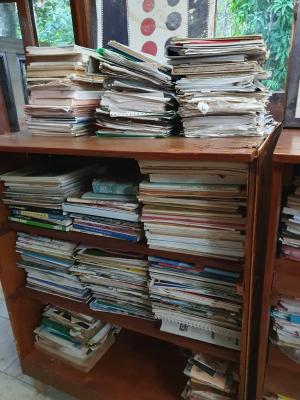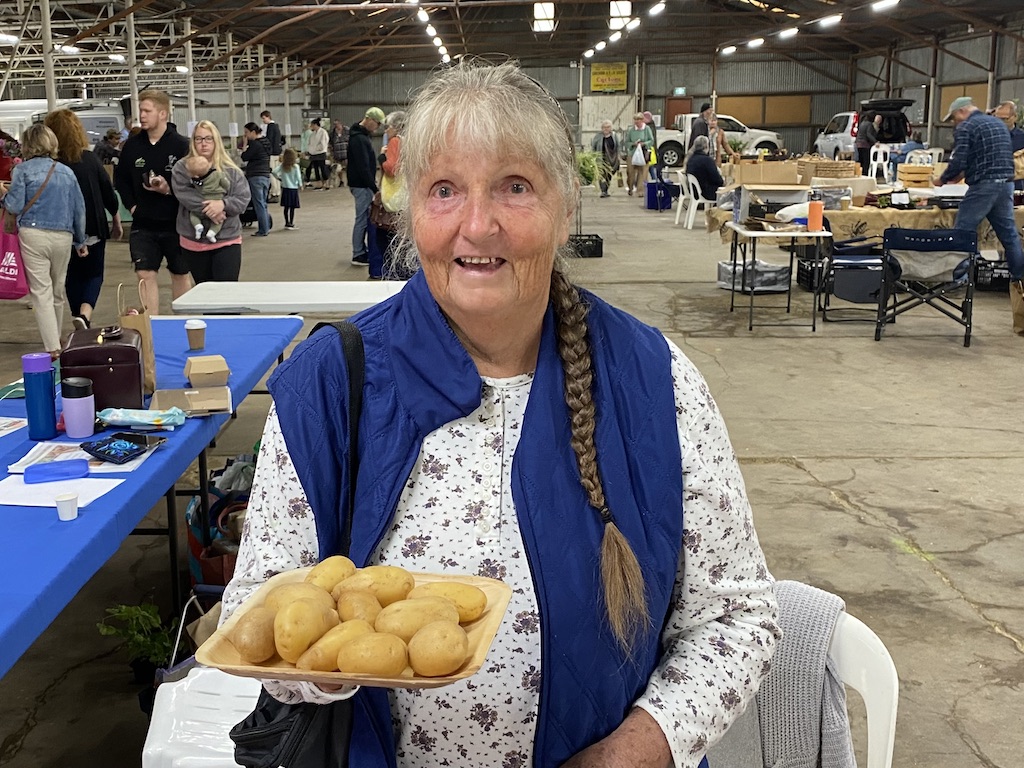
Roslyn Thompson with freshly grown potatoes at a previous Goulburn Farmers Market. The market is at the forefront of fresh moves to reduce plastic in Goulburn. Photo: John Thistleton.
Goulburn Farmers Market organisers and community action group The Goulburn Group are combining their efforts to get the community, Goulburn Mulwaree Council and retailers to reduce plastic, which takes 1000 years to break down in landfill.
The plastic reduction campaigners have met Goulburn Mulwaree councillors and pointed to a trial conducted by Wingecarribee Council on soft plastics, which involves residents taking them to a depot, from where they are picked up by a Victorian firm and turned into various products.
The Goulburn lobbyists want to approach all levels of government to stem the flow of plastics into the food and wider consumer system and, dreaming big, to add Goulburn to the growing list of plastics-free regional centres.
The Farmers Market has adopted a ‘minimal plastics’ policy, is encouraging buyers to bring their own containers and has asked for coffee vendors to offer a discount for bring-your-own cups.
Boomerang Bags, made out of reusable fabric to replace plastic bags, are also coming back as part of the fresh drive to keep plastic bags out of the waste stream.
Beginning in Queensland, Boomerang Bags swept the world a little over a decade ago. The concept quickly spread across Australia and took off in Goulburn after former Labor senator and community leader Ursula Stephens and Sue Soley sparked local enthusiasm.
Goulburn Soroptimist and Gallery On Track were among the groups that became involved, as a target of making and distributing 500 bags was set.
At well-attended sewing bees ‘sewing ninjas’ got to work making the handy carry bags. Volunteers helped by ironing the handles and rumpled fabric to speed up production lines. Soon after, Boomerang Bags began appearing at places like the Rotary markets and Riversdale.
Goulburn Farmers Market convenor Rita Warleigh said volunteers had enough of the bags left over to begin circulating them again at the monthly markets.
“We are setting up a table at the Farmers Market to assemble them and sell them for a few dollars. We already have offers of more material,” she said.
The Farmers Market and The Goulburn Group also conducted a plastic audit at the monthly market.
“We believe Goulburn Farmers Market can be a perfect contained study group to start looking into alternatives to plastic,” Rita said.
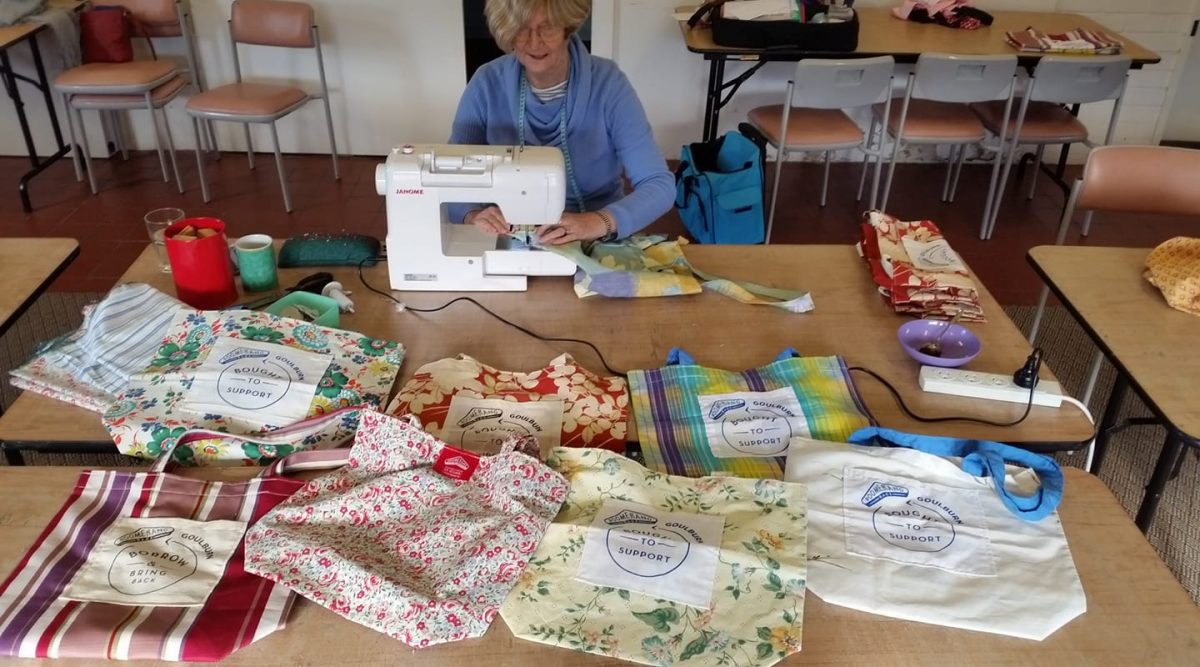
Volunteer Heather West making Boomerang Bags several years ago when Goulburn joined a worldwide campaign to introduce the recyclable bag as an alternative to plastic bags. Photo: Boomerang Bags/Facebook.
“We need to stop using it before manufacturers will give up making it, as it is a lucrative product, especially now that there is pressure to reduce petrol consumption,” she said.
She said some plastic packaging was required by legislation and more law-making was coming that would require more plastic packaging.
“Australian Farmers Markets Association is fighting back on behalf of food markets and small growers,” she said.
“Stallholders support the minimal plastics policy of the markets and are actively seeking packaging solutions that use more sustainable alternatives,” she said.
“Of the stallholders we have approached so far, they are happy for buyers to bring their own containers to be refilled,” she said.
After their initial small steps and studying reduction efforts at other local government areas, they would like to approach other retailers in Goulburn to raise awareness and to reduce plastic packaging.
“Our starting position is that the use of plastic needs to be urgently minimised, given frightening projections, such as that by 2050 the volume of plastic in the ocean will equal that of all marine life,” The Goulburn Group’s Mike Steketee said.
“So recycling is a second best option but nevertheless necessary given the millions of tonnes of plastic, particularly soft plastics, going to landfill or simply thrown away,” he said.
Mike said the group was aware of other residents in Goulburn and district doing everything possible to minimise plastic use and who wanted to recycle what currently couldn’t be avoided.
“That’s why we are keen for the council to do more and for supermarkets and other large outlets to take up the initiative,” he said.

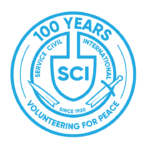

 Casper Bo Danø, CEO of FriSe (Volunteer Centers and Peer Groups Denmark) specializes in
Casper Bo Danø, CEO of FriSe (Volunteer Centers and Peer Groups Denmark) specializes in  Lejla Šehić Relić is the founder and CEO of the organization for
Lejla Šehić Relić is the founder and CEO of the organization for  Andrea Wigfield is Professor of Applied
Andrea Wigfield is Professor of Applied  Nichole Cirillo is the Executive Director of IAVE – International Association for Volunteer Effort. Nichole has significant executive experience across environmental and
Nichole Cirillo is the Executive Director of IAVE – International Association for Volunteer Effort. Nichole has significant executive experience across environmental and 


